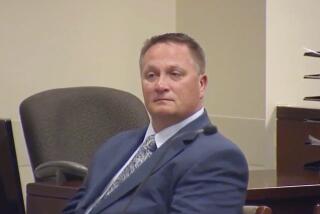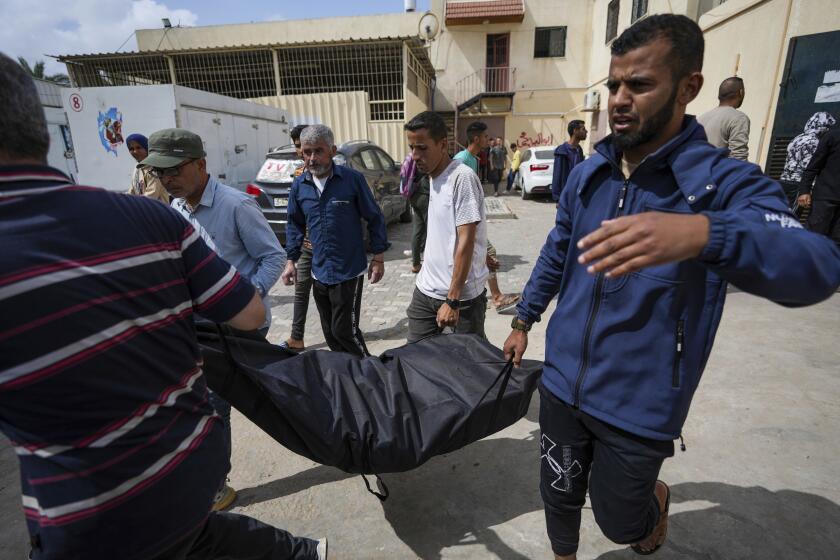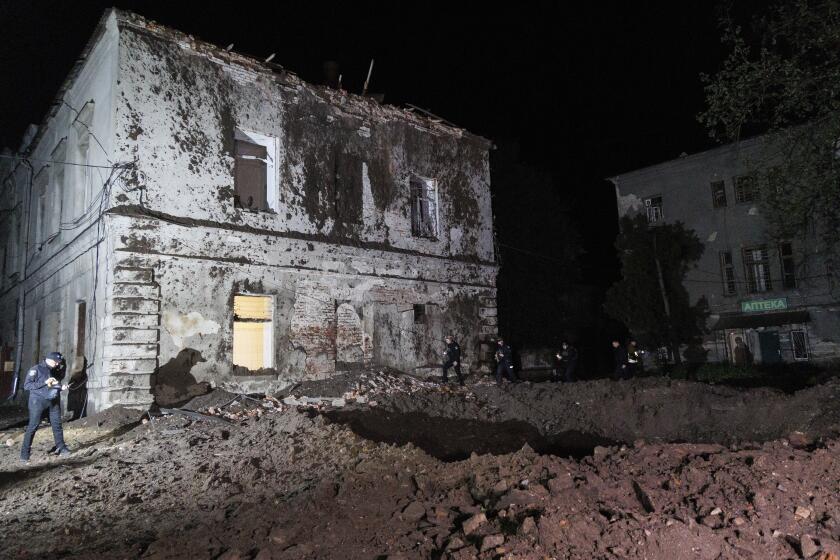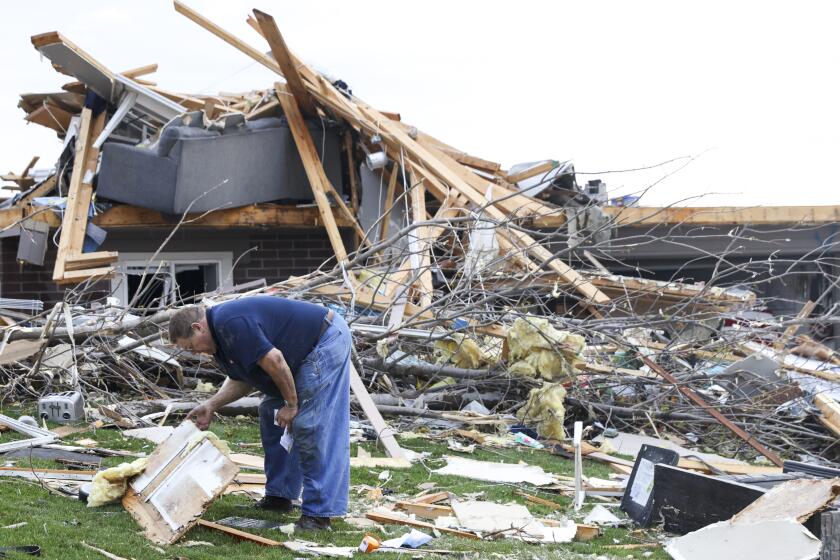10 Years Later, Still Marching for Justice
Echoing the Million Man March of a decade ago, a huge crowd gathered on the National Mall on Saturday to hear a star roster of black activists and artists demand social and economic equality and call for personal responsibility.
As at the event of October 1995, leaders and participants hoped it would lead to a generation of action. Speakers advanced a disparate collection of social and political demands that included the impeachment of President Bush and the rebuilding of New Orleans following the devastation of Hurricane Katrina.
Both the Million Man March and Saturday’s Millions More Movement were organized by Nation of Islam leader Louis Farrakhan, who addressed the crowd late in the afternoon. Earlier speakers included the Rev. Al Sharpton, the Rev. Jesse Jackson, and American Indian activist and actor Russell Means.
Farrakhan and other organizers said the event would help change public policies that have mired African Americans in poverty and eroded public health and safety. But they also stepped up demands for personal responsibility among black men and leadership organizations.
“It makes no difference what we say, but it will make a difference what we do,” Farrakhan, 72, said during his speech. “If we mobilize and organize, we can accomplish that which we desire for the good of ourselves.”
The 1995 event drew hundreds of thousands of African American men and is considered one of the largest gatherings ever held on the National Mall, even though attendance figures sparked a nationwide debate. Police declined to estimate the size of Saturday’s crowd, which some organizers said topped 1 million.
Judged by transit ridership, Saturday’s rally was smaller than that of 1995’s march. Washington transit officials said about 367,000 people rode subways Saturday; the figure for the Million Man March was 804,000. The Saturday average is 220,000.
But the participants spread for blocks along the lawns of the National Mall, as young and old sat in folding chairs and stood with families while listening to passionate speeches as well as musical performances by such artists as hip-hop pioneer Russell Simmons, vocalist Erykah Badu and Haitian hip-hop artist Wyclef Jean.
“These blacks here today see the poverty and ignorance that is keeping us at a certain place,” Simmons said in an interview. “They know where the forces are, and they will come together and force our government to respond to the poverty and ignorance that’s rampant in our country.”
Unlike the march of 10 years ago, which consisted mostly of men, Saturday’s rally drew thousands of women.
“Women can do anything nowadays,” said participant Lydie Menns, a 60-year-old Arlington, Va., resident originally from Cameroon. “I feel good about seeing all these women here today. We are the mothers and the caretakers of this nation.”
Several speakers also acknowledged the vast number of young people in the audience, saying that the hip-hop generation would confront the responsibilities of the future.
“I was 9 years old during the Million Man March,” said Chris Cottrell, 19, who joined 16 fellow students from Johns Hopkins University in Baltimore at the rally. “My mom took me out of school, and I watched it on TV, but I wasn’t sure of what was going on. Now I understand what this all means ... that we need to unite together in a movement like this.”
In his 75-minute speech, Farrakhan called for an alliance of the “black, brown, Native American and poor” and proposed separate ministries of health, agriculture, culture, trade, defense and information for the extra-governmental coalition.
“We’re living in a world where the rich are few and the poor are many,” he said. “But the poor are supporting the rich, and the rich hate anybody who can stimulate the consciences of the poor.”
Farrakhan stressed the importance of organization in the Millions More Movement, likening the power of organized people to the power of a hurricane as it gathers in force.
Farrakhan, long a polarizing figure because of views that have been branded anti-Semitic and sexist, stoked his reputation for generating controversy in the run-up to the rally last week by challenging the Bush administration to disprove claims that levees protecting low-income neighborhoods in New Orleans’ 9th Ward were deliberately breached.
Farrakhan fueled rumors circulating among some flood victims that the levees had been sabotaged to save more affluent areas from devastation, in part by citing unattributed and unsubstantiated reports from a right-wing New York radio program.
Farrakhan said suspicions were justified because levees south of New Orleans were blown up in 1927 to save the city, then mostly white, from flooding while homes of the rural poor were destroyed. Farrakhan also recalled the Tuskegee experiment, the 40-year period in which black men were used as guinea pigs for studies of syphilis, in demanding a fuller explanation from the Bush administration.
White House Press Secretary Scott McClellan dismissed a question about the flood at a news conference Friday.
In the last few years, Farrakhan has maintained a reduced public profile while battling prostate cancer.
The goal of the Million Man March in 1995 was to illuminate hardships faced by blacks and to promote voting and volunteerism in black communities. But the event also became part of the activism lexicon by spawning rallies and movements with similar names, even if not related to Farrakhan’s movement: the Million Mom March in 2002, designed to raise gun violence awareness; the Million Workers March in 2004, a rally against unemployment and the Bush administration; and the Million Dads March in 2004, a peace activist rally.
More to Read
Start your day right
Sign up for Essential California for news, features and recommendations from the L.A. Times and beyond in your inbox six days a week.
You may occasionally receive promotional content from the Los Angeles Times.






